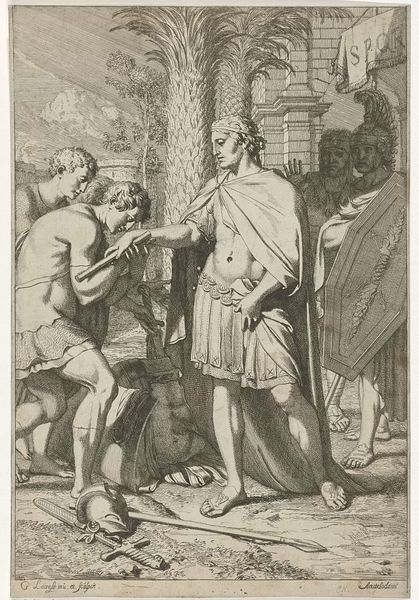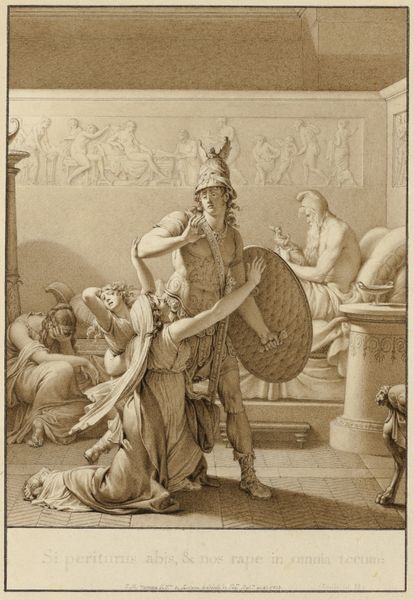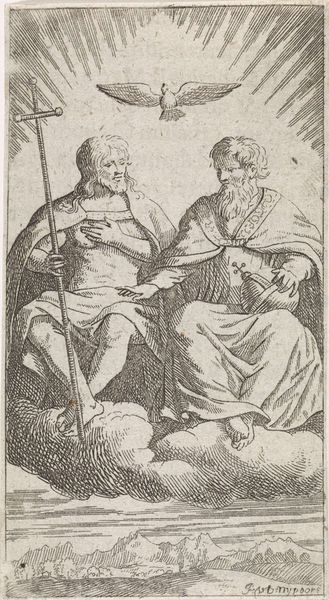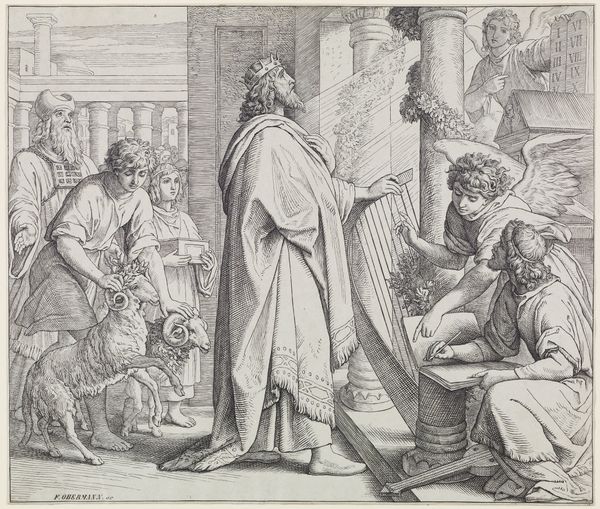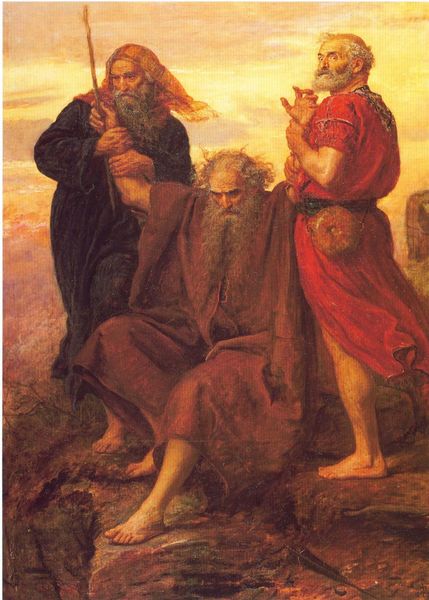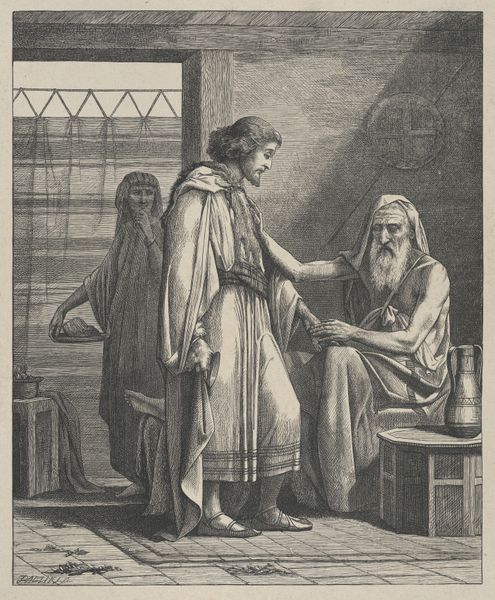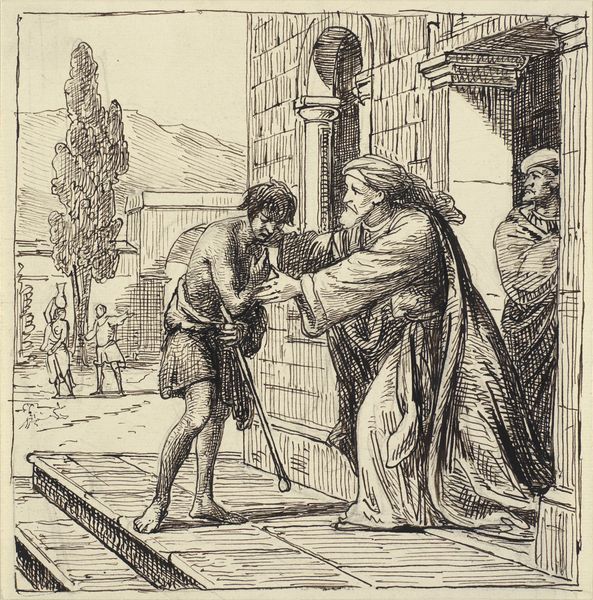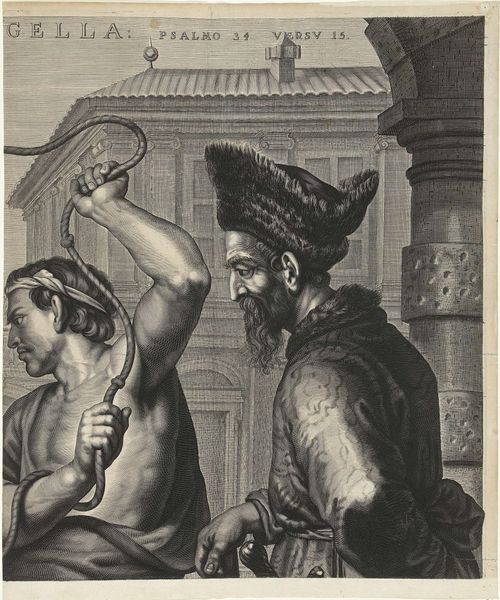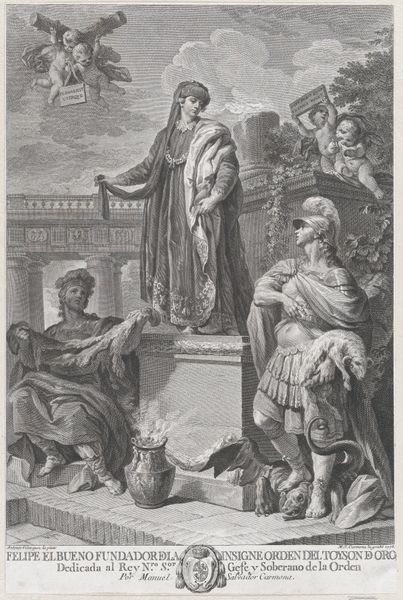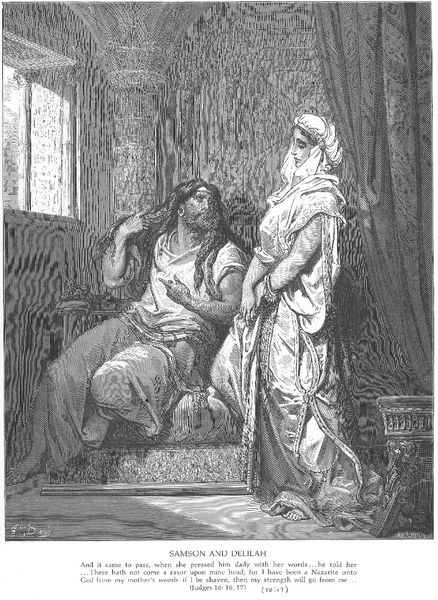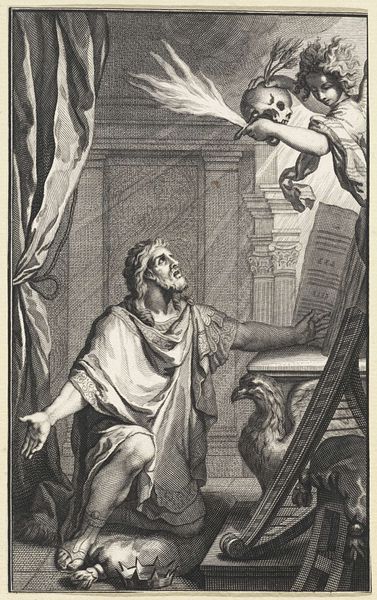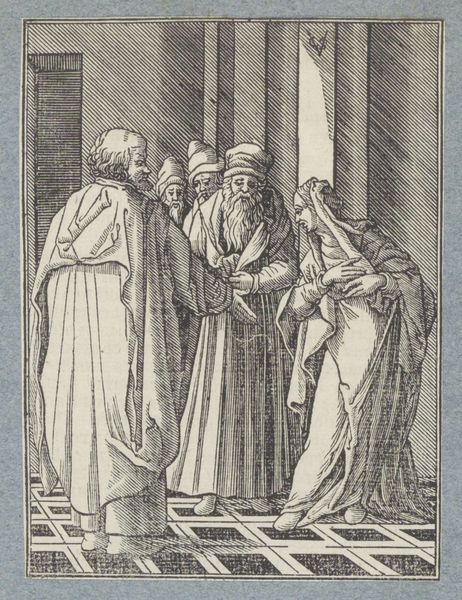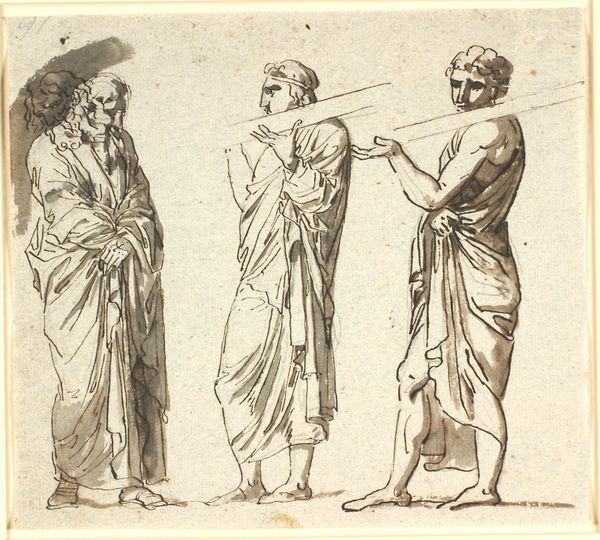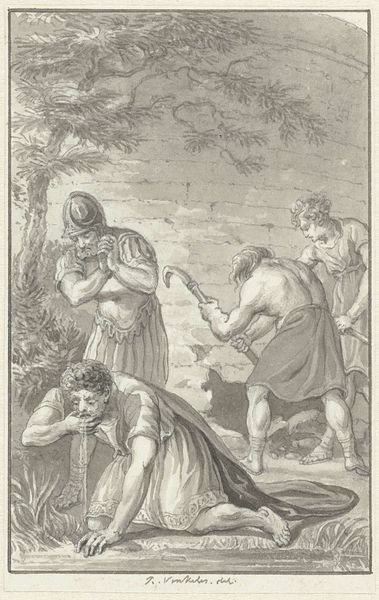
painting, paper, ink
#
portrait
#
art-nouveau
#
narrative-art
#
painting
#
greek-and-roman-art
#
landscape
#
figuration
#
paper
#
handmade artwork painting
#
ink
#
art nouveau
#
history-painting
Copyright: Public domain
Walter Crane painted "Yea, Verily, thou art Odysseus," an illustration that captures a pivotal moment from Homer's Odyssey. Crane, an artist deeply engaged with the aesthetic and socialist movements of the late 19th century, uses a classical narrative to explore themes of identity and recognition. Here, we witness Odysseus's return to Ithaca, where he is only recognized by his old nurse, Eurycleia, through a scar on his foot. The painting highlights the intimate act of care and recognition between an enslaved person and her master. Crane’s illustration reflects Victorian society's complex relationship with class and servitude. The act of cleansing, typically reserved for the lower classes, unveils Odysseus’s true identity, disrupting the social hierarchy. What does it mean for identity to be revealed through vulnerability? "Yea, Verily, thou art Odysseus" serves as a poignant reminder of how personal histories and embodied experiences intersect with broader societal narratives of power and recognition.
Comments
No comments
Be the first to comment and join the conversation on the ultimate creative platform.
